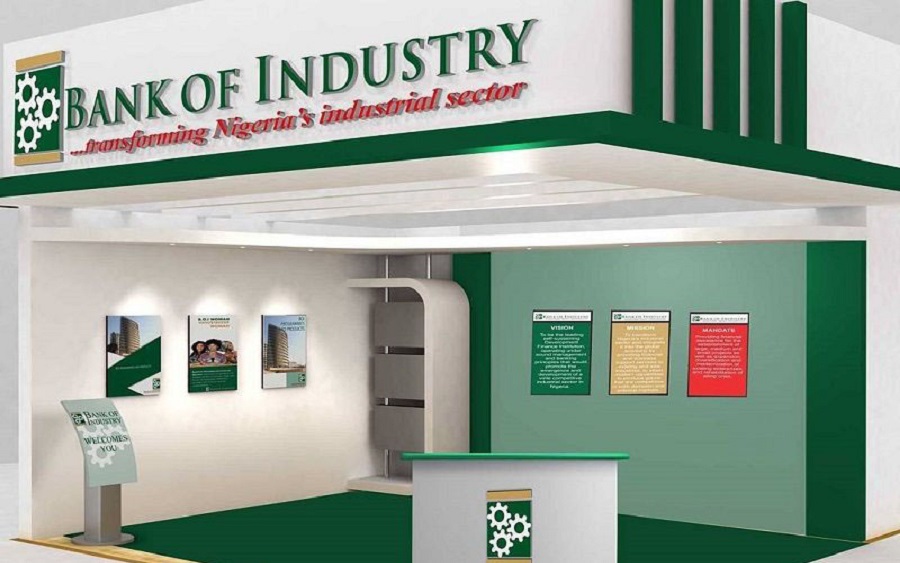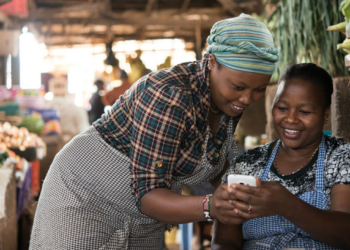Article summary
- Small and medium-scale enterprises have started leveraging technology to stay afloat
- Nigeria’s growth in real domestic product is relatively slow when compared to the African average
- 95% of MSMEs are not formally registered with the Corporate Affairs Commission
In the face of the rising cost of doing business in Nigeria, small and medium-scale enterprises have started leveraging technology to stay afloat. This was revealed recently by Lynda Saint-Nwafor, the Chief Enterprise Business Officer at MTN. She said this during the recently held Doing Business in Nigeria Conference (DBNC) held in Lagos.
She said slowing demand has led to SMEs identifying alternative channels to sell products, with ~20% of formal businesses reporting selling via online channels.
- “Likewise, there has been a proliferation of Nigerian startups offering MSMEs digital SME services, including quick credit, payment wallets, and bookkeeping services,” she said.
Saint-Nwafor noted that the number of MSMEs in Nigeria dropped by ~2 million between 2017 and 2021, with most key metrics trending downward.
She said the number of businesses decreased by 4.5% to 39.6 million in 2021 due to pandemic-related reasons and unfavorable macroeconomic conditions.
- “Nigeria’s growth in real domestic product is relatively slow when compared to the Africa average, with growth forecasts of 2-4% per annum over the next five years,” she said.
Cost of doing business
She also stated that 54% of MSMEs in Nigeria have identified the rising cost of doing business as a major deterrent to the growth of their business with annual inflation at ~20%, the highest since 2005.
Highlighting the cost of doing business in relation to the value of the naira, she said while the official rate has only increased by ~3X from N150 in 2021 to N435 in 2022, the parallel-market rate has increased by ~5X from N154 in 2010 to N737 in 2022, stressing that significant devaluation of the naira is driving price volatility and impacting business success.
- “There are ~40 million MSMEs in Nigeria; over 90% of these are sole entrepreneurs, scattered across the country and operating informally. 95% of MSMEs are not formally registered with the Corporate Affairs Commission (CAC). 70% of informal businesses are in agriculture and wholesale/retail trade sectors,” said Saint Nwafor.
She stated that limited access to funding, rising costs of doing business, and increased technology usage are three key trends observed within the Nigerian SMEs landscape.
Limited access to funding
- “Only 4% of MSMEs in Nigeria reported having access to commercial credit finance with 59% citing personal savings as their primary source of capital.
- “Even when funding is available, low awareness of opportunities and a lack of financial knowledge remain major barriers to SMEs accessing the required support.
- “20% of MSMEs also indicated inconsistent power supply as a top challenge, leaving businesses to source other alternative power supply,” she said.
Highlighting some of the challenges SMEs face in Nigeria, she said despite funds chasing start-ups and other businesses, only 4% of MSMEs reported having access to commercial credit finance, mainly due to low awareness of opportunities and lack of financial knowledge.
She added that SMEs are constrained to local and niche markets, low product differentiation, low productivity, and costs to reach target markets.
She urged SMEs to employ digital marketing techniques -social media advertising, SEO, etc. to reach a wider audience and increase online visibility by analyzing user data to create targeted campaigns to increase traffic and conversions.























